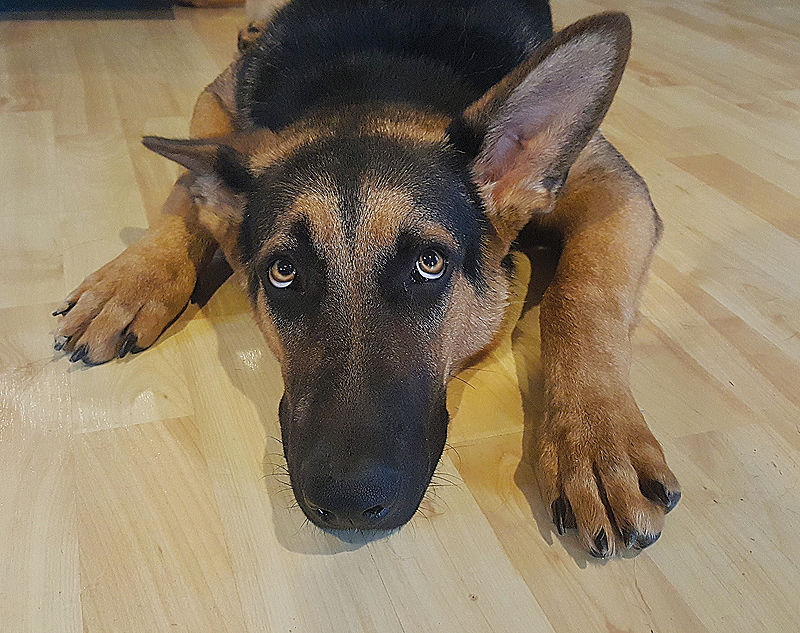No Fourth of July would be complete without fireworks displays. But pets often don’t find the noise, blasts and flashing lights associated with fireworks fun or entertaining. With fireworks going off in Utah throughout the month of July, pets are bound to get stressed and anxious. Utah State University Extension specialist Karl Hoopes and Allison Willoughby, both faculty in the USU School of Veterinary Medicine, shared tips to help owners keep their pets safe and make the summer more enjoyable for everyone.
Both Hoopes and Willoughby emphasized the importance of keeping pets in an area they are familiar with and where they can’t hear the fireworks.
“If your dog is mildly nervous, just keeping it in a safe area is easiest and safest,” Willoughby said. “Feeling ‘safe’ to your dog may be a cool basement or lower-level family room with a fan blowing to dampen the noise.”
Hoopes said the shelter needs to be indoors where sound can be better controlled and pets can’t escape. Playing soft music or leaving the TV on can also keep them distracted and drown out the noise of the fireworks.
Special clothing, such as anxiety jackets or vests, can also be helpful in keeping animals calm. Willoughby said these jackets basically give the dog a hug by applying constant pressure, which makes it feel safer.
While dogs are usually more comfortable when their owners are nearby, giving them too much reassurance can actually have the opposite effect and make them more nervous.
“Dogs can feel more anxious if you are telling them over and over again they are going to be okay,” Willoughby said. “They can sense your own anxiety. Try to project confidence to your dog and give it the most attention when it is calm and confident.”
Prescription medications can also be useful when it comes to helping pets feel safe. If a dog has high anxiety levels, Hoopes advised owners to plan ahead and contact their veterinarian to get a safe sedative to keep it calm.
Herbal supplements can also be beneficial in treating milder cases of anxiety. Willoughby said these supplements are available over-the-counter from pet stores or veterinarians and are safe to give over long periods of time.
“Don’t use human prescriptions on your animals,” Willoughby said. “Some may be toxic, and the dosages are different for pets. Your veterinarian will carefully calculate correct dosages based on your pet’s species and weight. Also, your veterinarian will know any preexisting conditions that might not allow your pet to take certain medications.”
Willoughby had some advice for cat owners as well.
“I recommend you keep your cat indoors,” she said. “Cats are pretty good about finding a spot where they feel secure. If they are hiding out a lot, just make sure they have access to their litter box, food and water and somewhere they can visit without feeling too vulnerable.”
Sometimes pets still escape. “Pet owners should make sure their animal’s microchip and license are up-to-date to avoid losing their furry friends.
HOME & GARDEN: Be kind – Pets don’t think holiday fireworks are fun

dog
